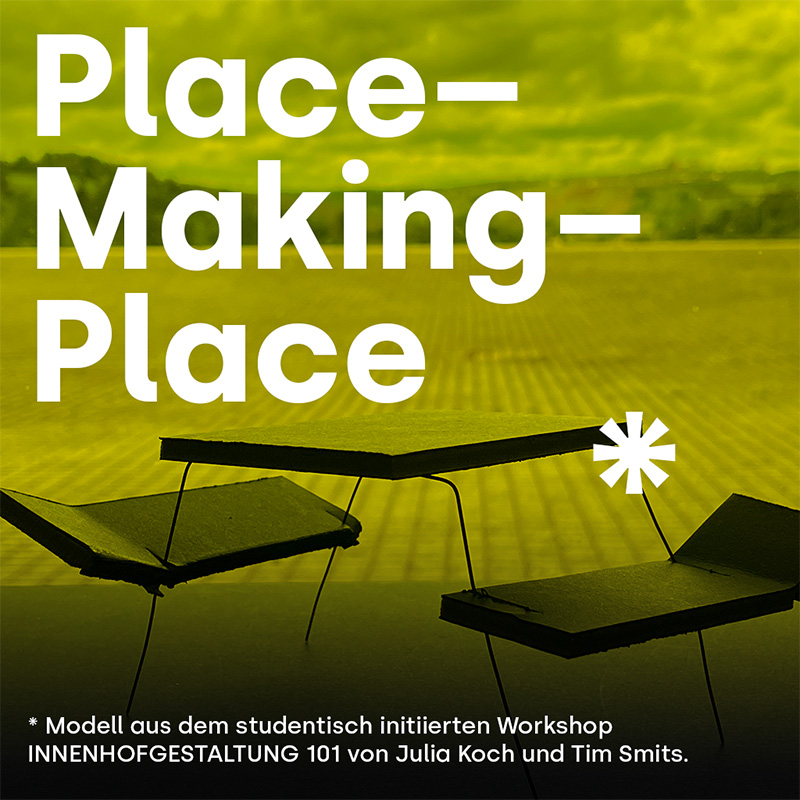Place-Making-Place
SHL can do better

What is the significance of a place for the people who use it? What motivates people to live in a place, to appropriate it, to get involved, to care for it?
The term placemaking covers various theories and approaches to the planning, design and management of public spaces. The aim is to create public spaces that improve urban coexistence and promote the health, happiness and well-being of its inhabitants. Special attention is paid to the potential and inspiration of a local community. Unused space is (re)used to change the human experience of a place, ultimately a city, and thus shape new behaviors.
Using the example of SHL (Campus Sanderheinrichsleitenweg) as a (semi)public space, we want to use furniture as a tool, structure and object of intervention to explore the potential that the yard holds for our community, our togetherness, our microcosm SHL. Using prototypes, aspects of production, usability and life cycles of products will also be deliberately conveyed and tested.
The exploration phase of the course will be accompanied by a 3-part workshop by artist Katharina Lüdicke:
October 18 Derivè
November 08 Actions and gestures
November 29 Change, alter, vary
In each case from 9-16.30 hrs.
The City Intervention workshop begins with a joint approach to everyday urban life and its space. The explorations are followed by actions and gestures. The aim of the 3rd meeting is to use simple means to tie in with existing local structures and make your own ideas for change visible. The chosen location (on one’s own doorstep) is a field of experimentation, the added element (action, object) is a means of demoscopy and an opportunity to reflect on the urban space. Appropriate documentation on site is essential for the further use of the ideas.
We spend 3-4 hours outside at each meeting.
Katharina Lüdicke’s work focuses on provisional and imperfect aspects of urban space and architecture. Through transformation processes that find a form in installations, temporary buildings, drawings and short films, she opens up new perspectives on our social and built environment. More information at katharina-luedicke.de
I will be happy to answer questions about the course on Monday, 30.09.24 between 10:00 – 11:00 a.m. at fhws.zoom.us/my/judithglaser.
By arrangement, the course can be taken in the 3rd semester as a foundation project.